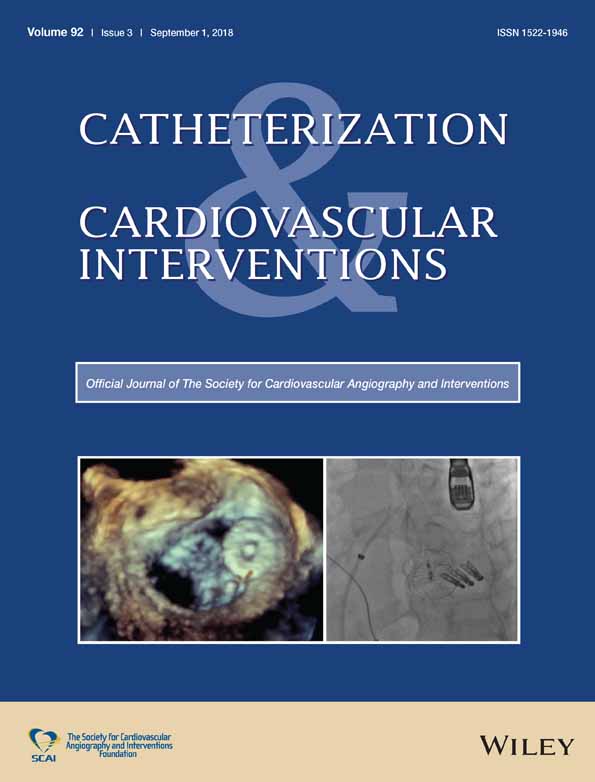Afterload mismatch after transcatheter mitral valve repair with MitraClip for degenerative mitral regurgitation in acute cardiogenic shock
Conflict of Interest: Dr. Tang is a consultant, advisory board member, and faculty with Abbott Structural Heart. All other authors have no conflicts of interest to disclose.
Abstract
Acute afterload mismatch after surgery for mitral regurgitation (MR) with transient left ventricular dysfunction is well known, but not described after transcatheter mitral valve repair with MitraClip, except in functional MR and cardiomyopathy. MitraClip to manage acute severe MR and cardiogenic shock has also been rarely reported. We report here a 77-year-old female who presented with acute severe degenerative MR from a flail posterior leaflet, with cardiogenic shock requiring intra-aortic balloon pump support. She was medically stabilized and underwent successful MitraClip repair with mild residual MR, but developed acute afterload mismatch and severe left ventricular dysfunction and shock 24 hr after her procedure. Patient was medically managed with intra-aortic balloon pump and inotropic support. She subsequently fully recovered with normal ventricular function and was discharged after 14 days. Patient remained asymptomatic in NYHA I functional class 9 months after MitraClip repair, with mild residual MR and normal ventricular function. MitraClip repair in patients with acute severe degenerative MR and cardiogenic shock is a less invasive and potentially safer alternative to open surgery, but acute afterload mismatch may occur and requires prompt diagnosis and management for a successful outcome. © 2017 Wiley Periodicals, Inc.




